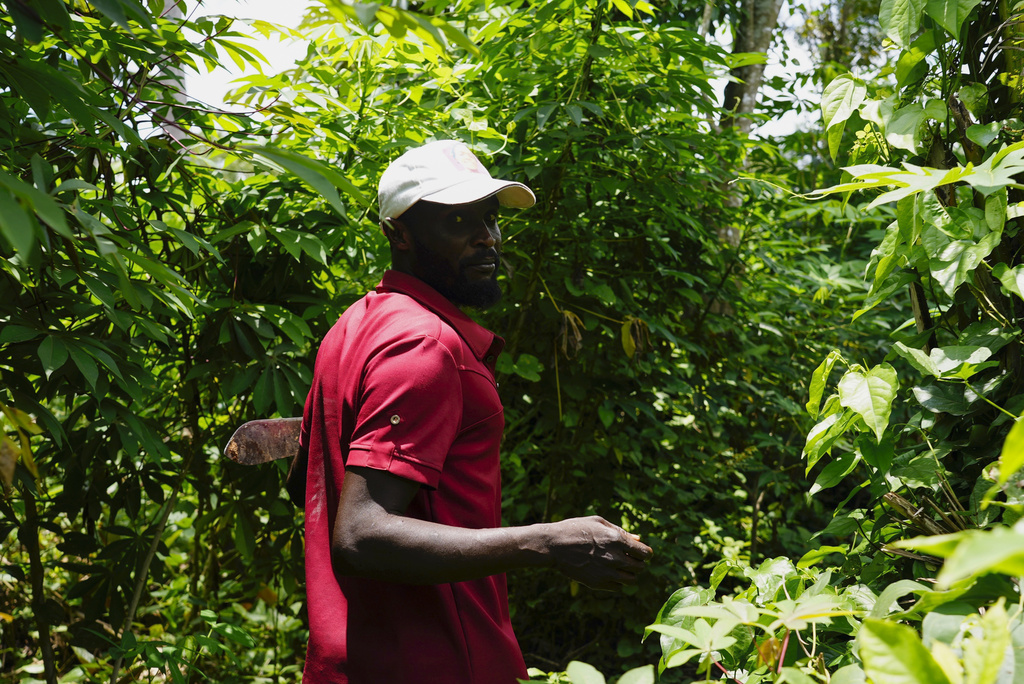ADF STAFF
Critics are accusing a Chinese gold-mining company of threatening a protected forest in the Democratic Republic of the Congo with toxic pollution.
Kimia Mining operates in the Okapi Wildlife Reserve. A World Heritage Site, it is home to the endangered okapi, which resemble a small giraffe with a short neck; 17 species of primates and 376 species of birds.
The reserve spans more than 13,000 square kilometers in the northeastern Ituri Province, near the borders of South Sudan and Uganda. It is part of the Congo Basin, that is home to indigenous Mbuti and Efe forest tribes who depend on the rainforest’s resources.
Those resources have declined over the last eight years, as Kimia Mining has expanded its operations under opaque arrangements. Locals and conservationists accuse the company of decimating the environment.
“It is alarming that a semi-industrial mining operation is being given free rein in what’s supposed to be a protected World Heritage Site, that was already on the danger list,” Joe Eisen, executive director of Rainforest Foundation UK, told The Associated Press.
Employees and mining experts say Kimia uses mercury to separate gold from ore. The United Nations considers mercury a major public health concern as it can have toxic effects on nervous and immune systems.
One 27-year-old woman who worked as a cook for Kimia for six months and lives near the mine said the soil has become infertile. “(It’s) poisoned by chemicals used by the Chinese,” she told the AP.
Officials added the reserve to the World Heritage Sites in Danger list in 1997 due to destruction from artisanal mining and conflict over infrastructure and elephant poaching. Armed groups operate in the reserve, but disagreements over its boundaries complicate law enforcement.
John Lukas, president of the Okapi Conservation Project, told Mongabay, a conservation and environmental science news website, that he believes these issues should be resolved at the ministerial level. The DRC’s mining ministry told the AP it is working to update the boundaries and protect the park.
Kimia grants limited access to locals to mine some areas, but for a fee that residents such as Muvunga Kakule, 44, cannot afford. Kakule used to do artisanal mining in the reserve while also selling food from his farm to other miners. He said he has lost 95% of his earnings as he can no longer mine and the Chinese will not buy his produce.
“Our life has not been the same since the Chinese came and chased us out of the bush,” Kalule told the AP. “We can no longer work or send our children to school.”
As mining operations increase, deforestation in the reserve is accelerating, particularly along the Ituri River, according to data from the Global Forest Watch platform. Satellite images reveal vast patches of reddish-brown earth, roads and pits where trees once stood.
The reserve lost 480 hectares of primary forest — 4.8 square kilometers — between January and May 2024, according to the Wildlife Conservation Society and government agencies. It lost about 1,890 hectares of forest cover in 2023, 1,350 hectares in 2022, 980 hectares in 2021 and 844 hectares in 2020, Global Forest Watch reported.
Kimia operates at the Muchacha mining site in the southwestern portion of the reserve along the Ituri River. A 2021 report by the U.N. Educational, Scientific and Cultural Organization warned that the site was “transforming into a permanent settlement.”
“The [Muchacha] mine has grown and now it’s got roads and buildings and churches and schools and bars,” Lukas told Mongabay. “It’s a town, and it’s got lots of people there. And so the trees have all been cut, and of course the river has been polluted quite heavily because of the chemicals they use during the mining process. It’s a real mess.”
In 2022, 205 Congolese civil society organizations urged the government to rescind Kimia Mining’s permits and halt ongoing deforestation and mercury pollution.
Adams Cassinga, founder of the nonprofit organization Conserv Congo, told Mongabay the intention was to draw international attention and put pressure on the Congolese government. However, government records show that Kimia Mining has renewed its permits until 2048, the AP reported.
Aime Vusike Kiruzi, director general of Epulu Radio, which operates from inside the reserve, said he wants Congolese authorities to protect the park so that future generations can see its wildlife.
“We are no longer seeing some species that used to be well protected here,” Kiruzi told the AP. “In our time, we’ve seen protected species such as okapi, elephants, antelopes. We even saw monkeys. But it is no longer easy to see them.”

